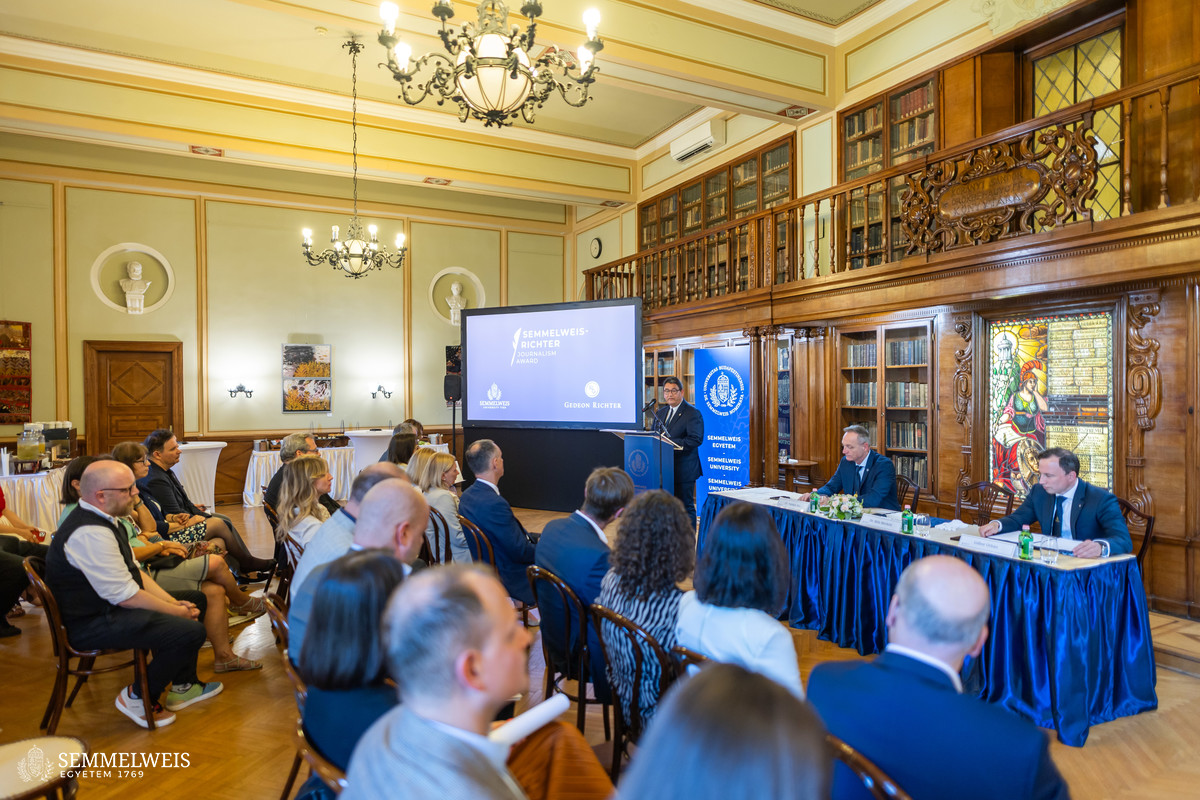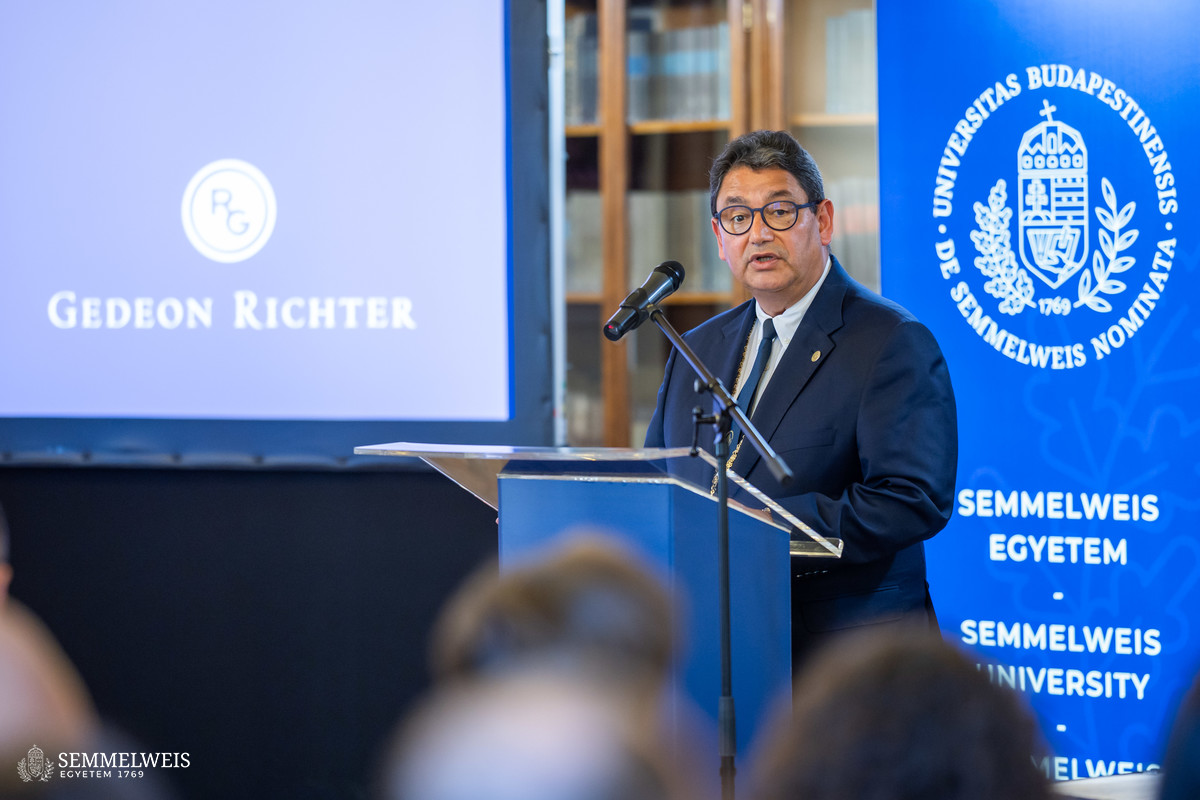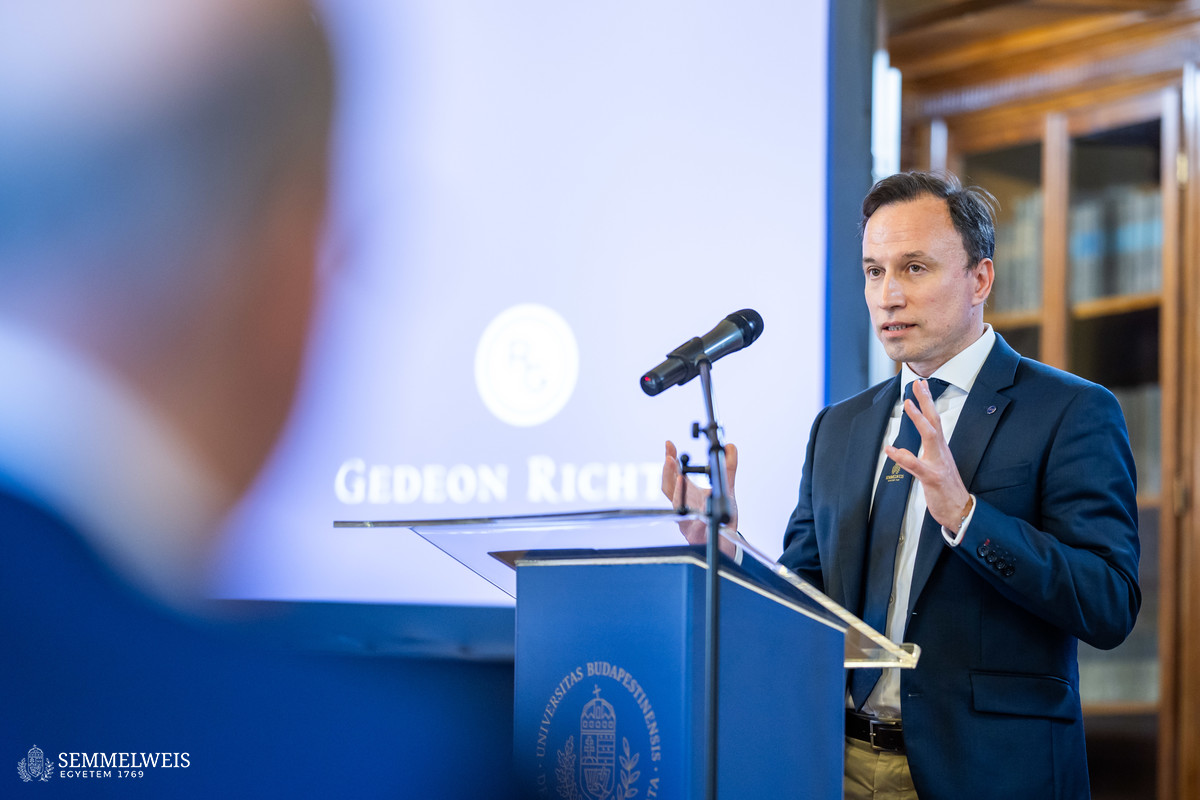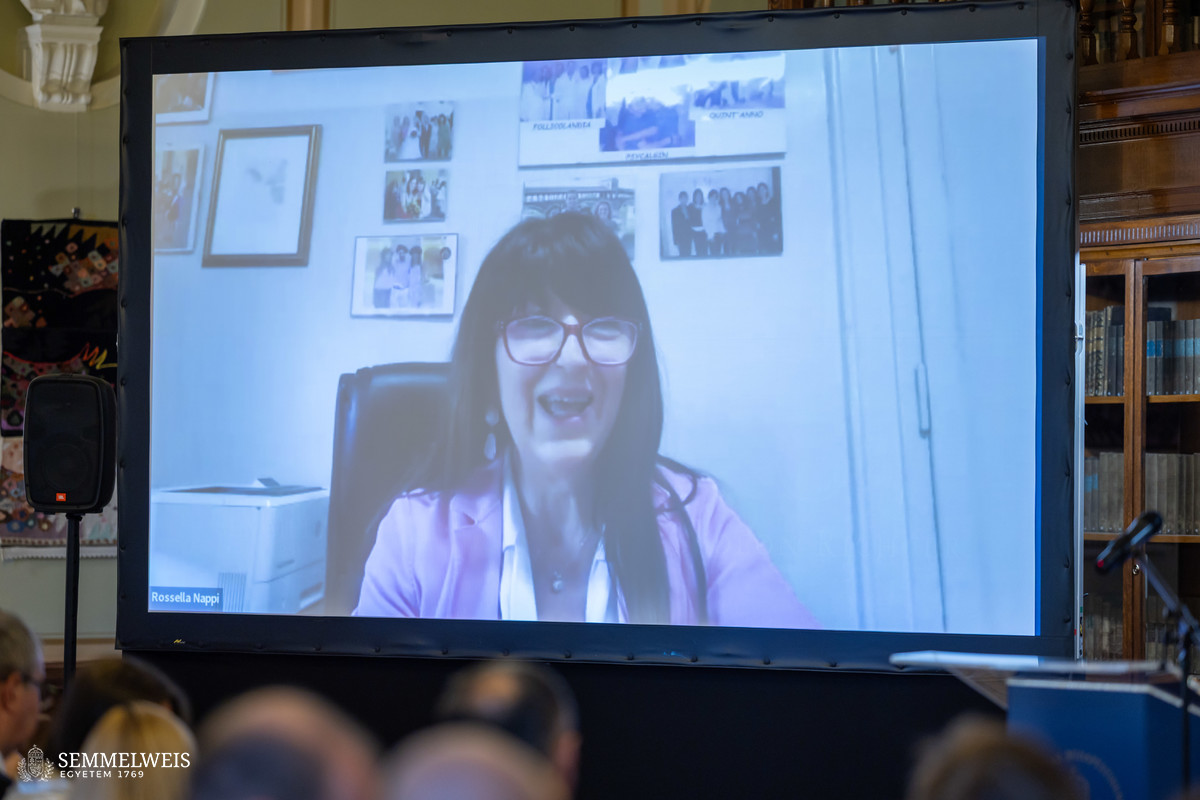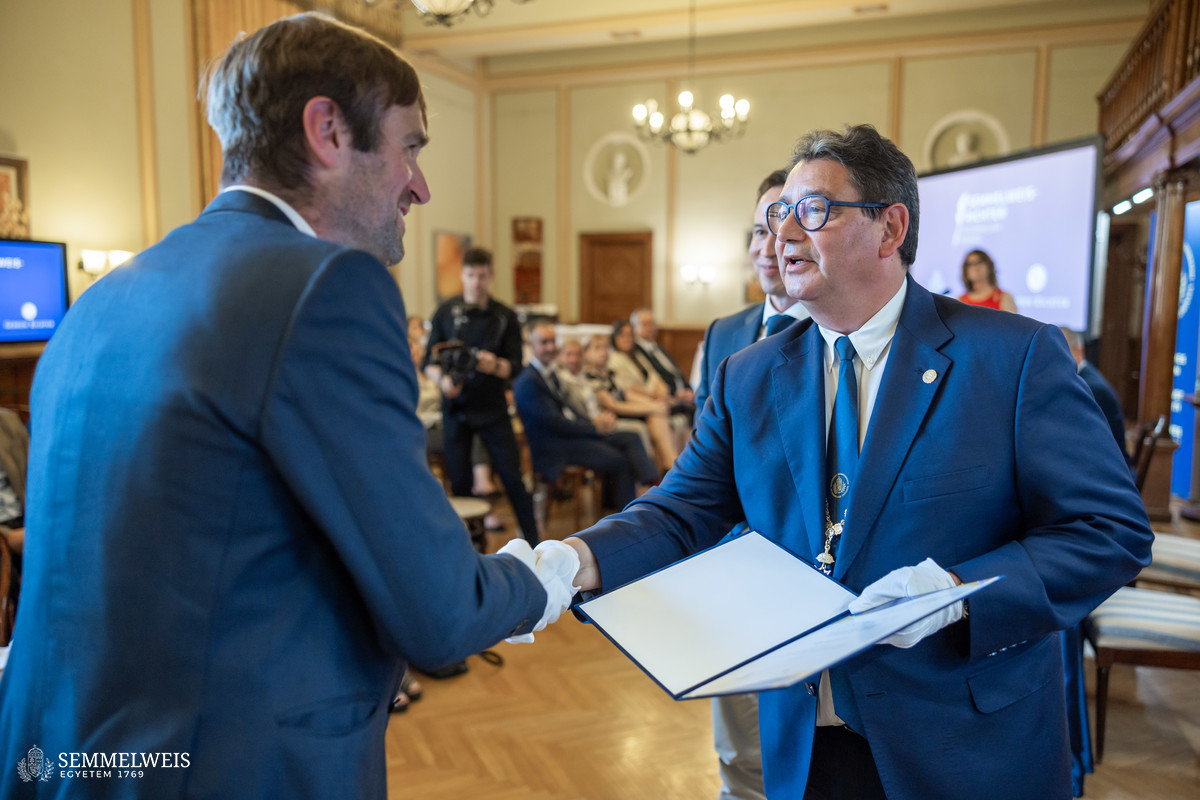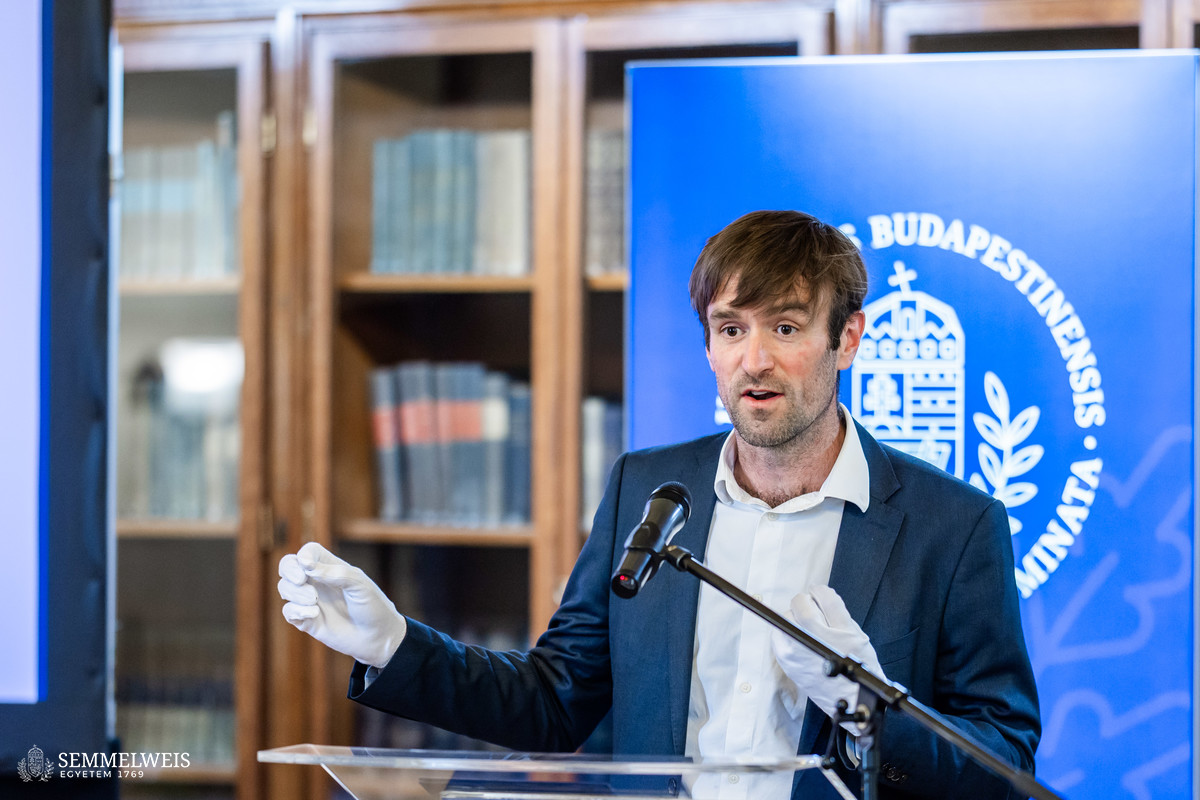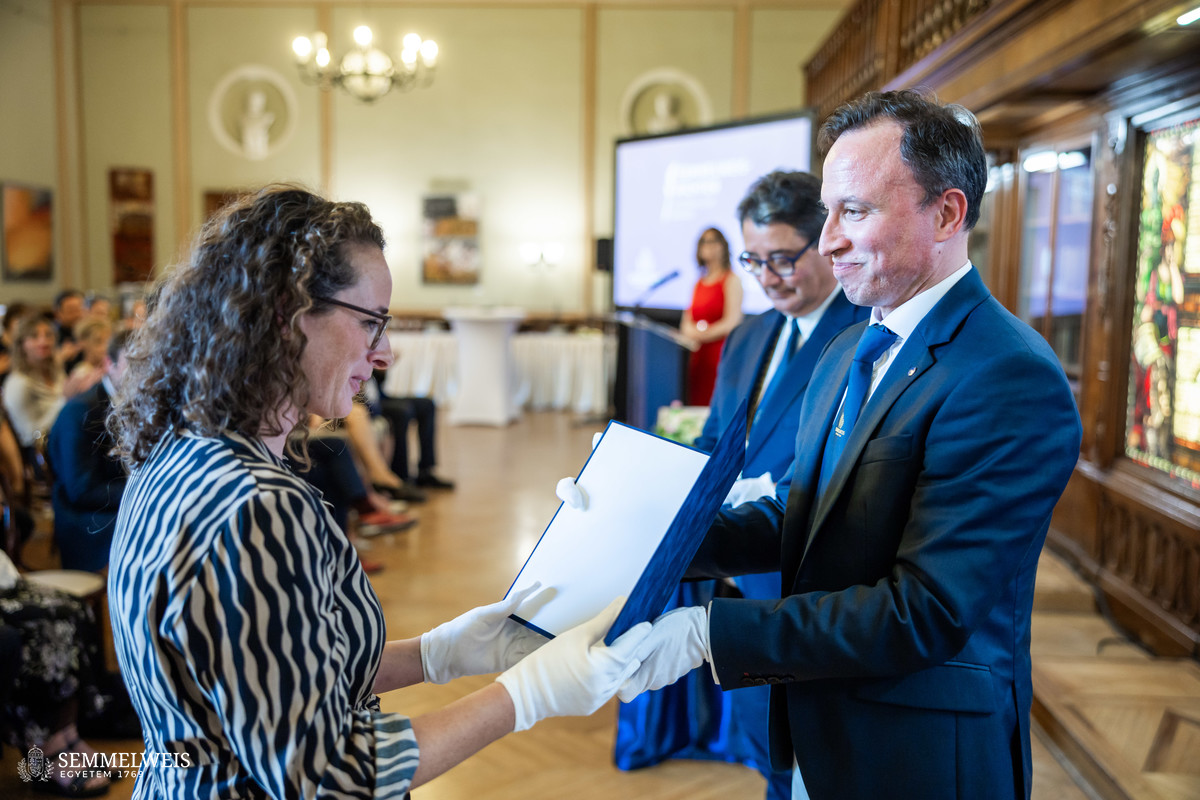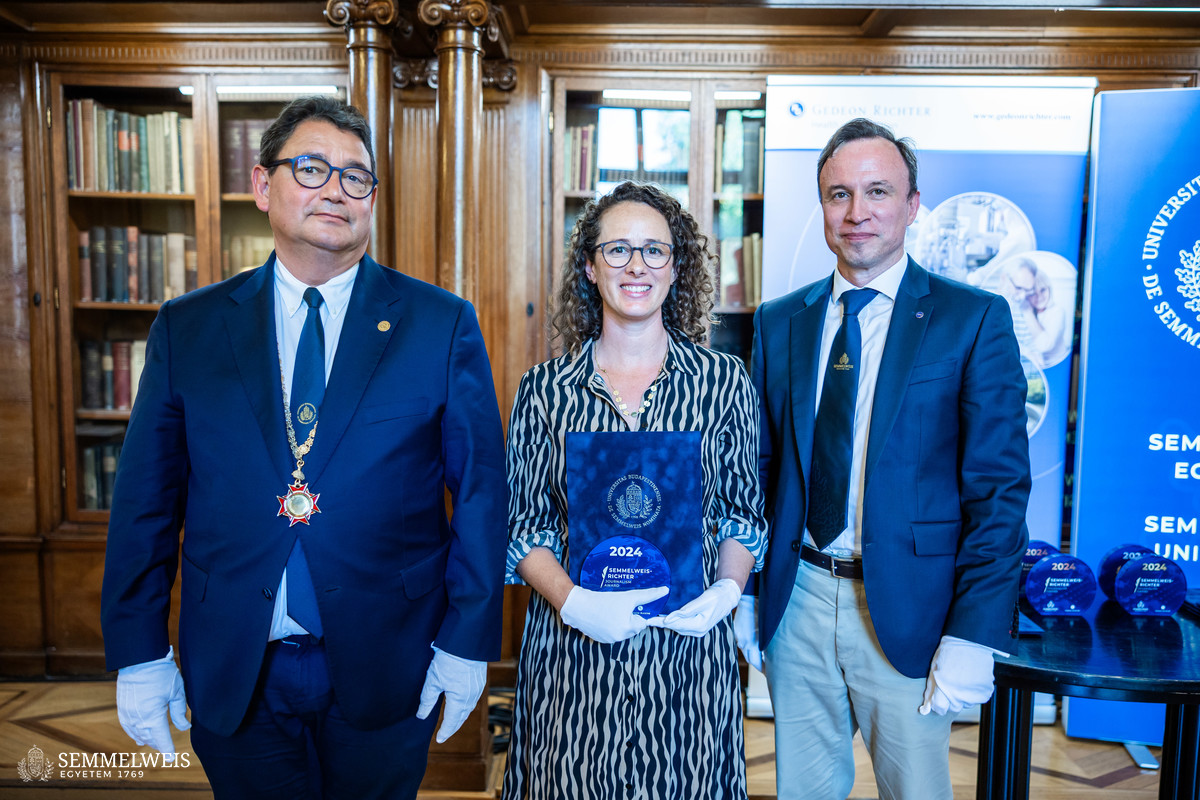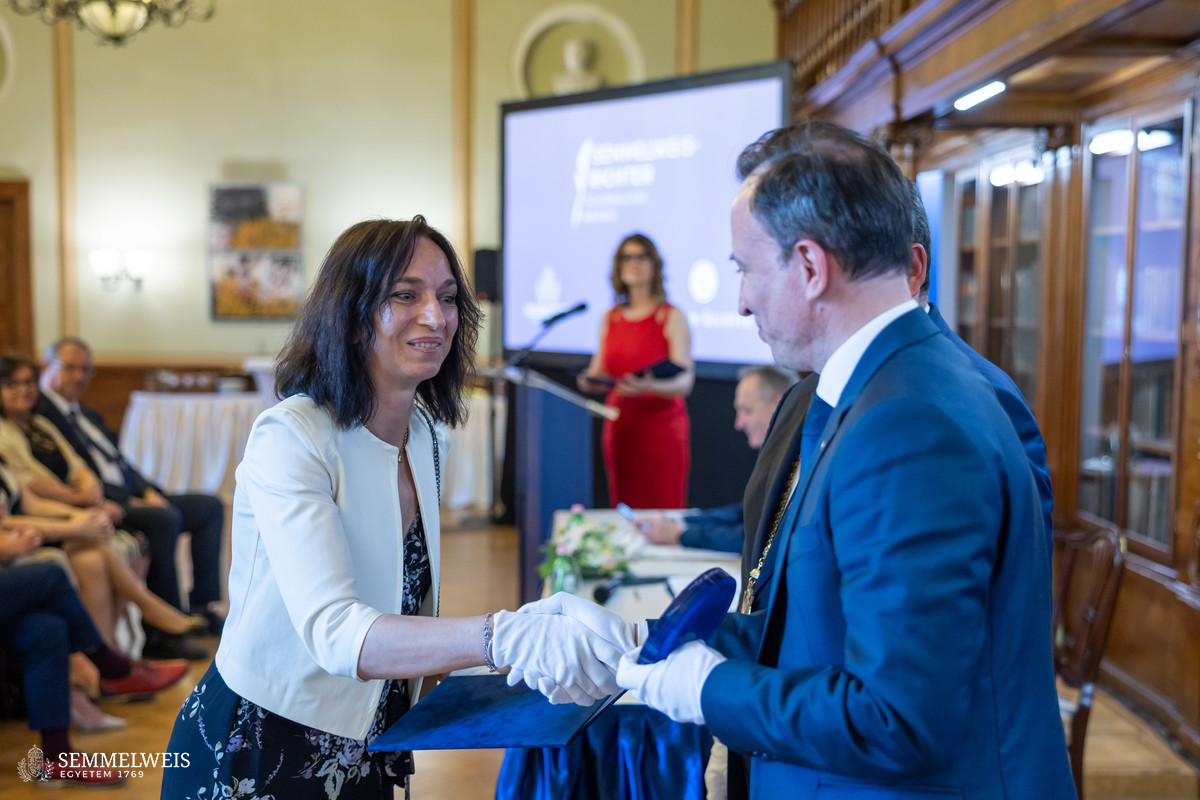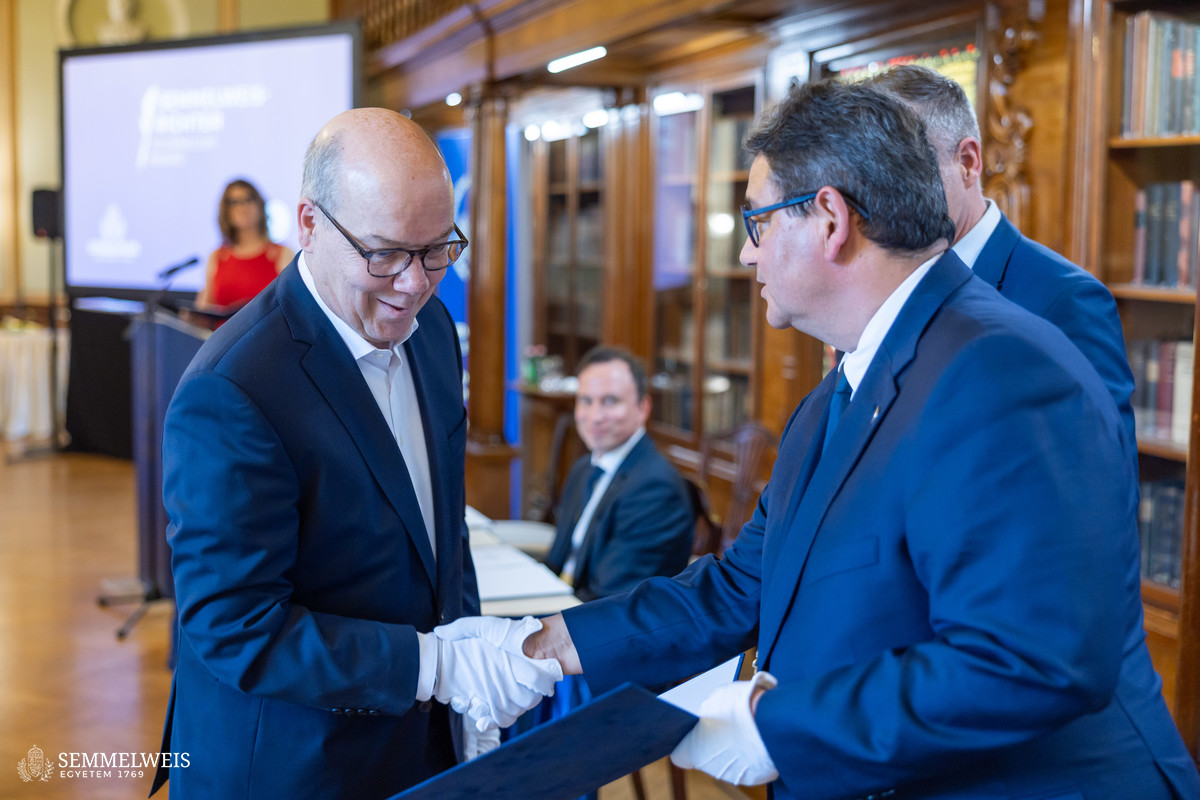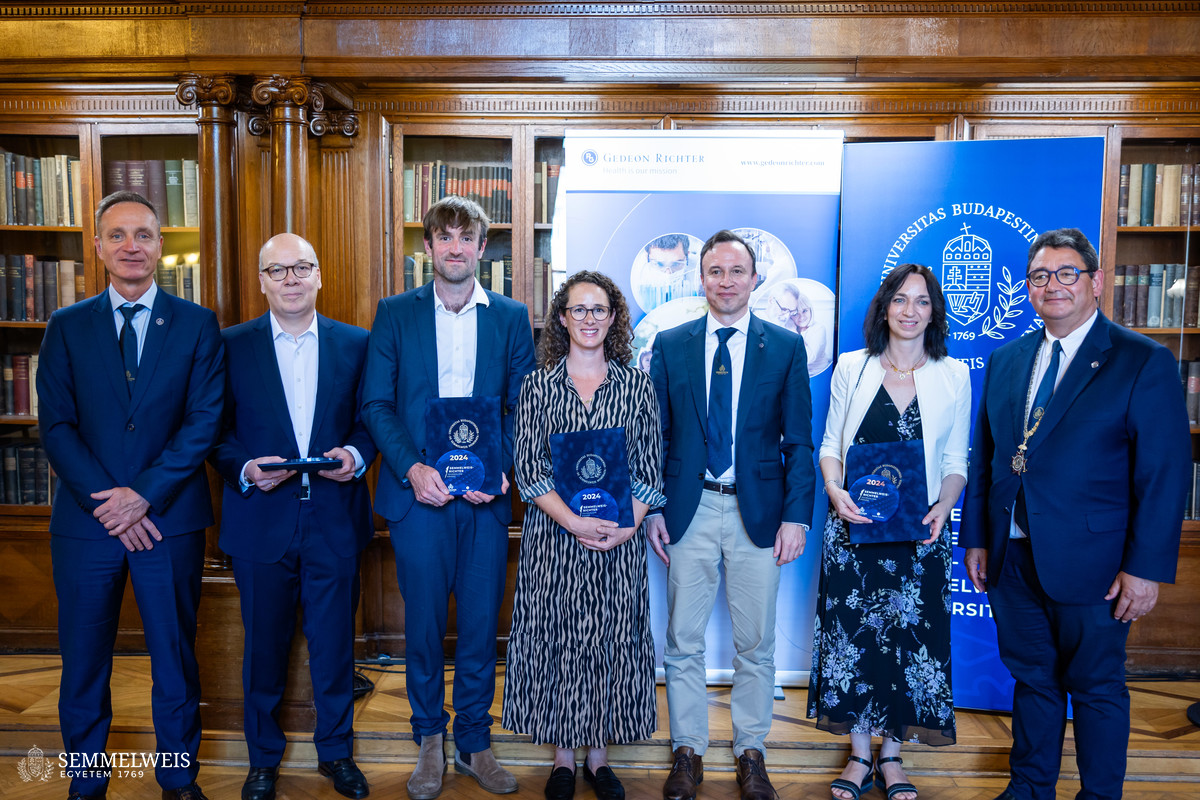Organized by Semmelweis University and sponsored by Gedeon Richter, the international journalism award marks another milestone in the longstanding collaboration between the two institutions. In 2019, Semmelweis University and Gedeon Richter signed a strategic cooperation agreement, under which the pharmaceutical company established a scholarship program for PhD students and a talent development initiative for university students. In 2023, the Richter Department was established at the university with the aim of providing students in undergraduate and postgraduate programs with innovative knowledge, including the latest topics and expertise in pharmaceutical research and development. Semmelweis University and Gedeon Richter, through their cross-border presence, strive to promote progress and foster positive change on an international level.
With this new award, the two institutions aimed to highlight the profound impact of journalism in fostering a deeper understanding of healthcare issues and innovations, and their effects on communities. By recognizing excellence in journalism, the award underscores the critical role of media in shaping public knowledge and promoting healthier lives globally.
Read Semmelweis University's full recount, as published on their website, below:
Recognizing excellence in health journalism, the 2024/2025 Semmelweis-Richter Journalism Award honored reporters whose work has brought health issues to the forefront of public attention.
Organized by Semmelweis University, Budapest, a leading institution of higher education in Hungary and the Central European region within the area of medicine and health sciences, and supported by Gedeon Richter, an innovation-driven specialty pharmaceutical company based in Budapest, the 2024/2025 Semmelweis-Richter Journalism Award (SRJA) was launched to recognize excellence in health journalism.
The organizers sought stories that help raise awareness, are about certain stigmatized diseases within society, cultivate open social discourse, and/or ultimately lead to improved treatment and understanding. The award honored six journalists in two categories: Women’s Health and Pharmacological Strategies and Innovation.
For its inaugural year, the SRJA saw an exceptionally high number of entries from countries all across Europe.
Among the submission were stories on unresolved medical issues, patients’ who fight for their rights, stories on novel drugs and treatments, and policy issues. The featured works span a wide range of platforms, from major general-interest newspapers to health-focused publications tailored for the broader public.
The award ceremony, which took place on June 5 in Budapest, brought together journalists, health professionals, and renowned experts in the field of women’s health and pharmacology to honor impactful storytelling.
The award ceremony opened with the welcome remarks of the head of the organizing establishment: Béla Merkely, Rector of Semmelweis University, highlighted the critical role of responsible and insightful health reporting, especially in today’s complex information landscape.
By launching the Semmelweis-Richter Journalism Award, we also aim to play a cross-border role in promoting health education and awareness, befitting the international character of our university. We are particularly pleased to be doing this together with our strategic partner, Gedeon Richter Plc. We are proud that the first edition of our competition attracted a high number of excellent entries published in prestigious media outlets, with over 70 entries in total arriving from the United Kingdom through Portugal to Russia.
– Dr. Béla Merkely
Gábor Orbán, CEO of Gedeon Richter Plc, the company that supported the award, talked about advancing global health through innovation, access, and trust—and the essential role journalism plays in making it possible.
“At Gedeon Richter, we’re driven by a commitment to innovation and to improving health around the world. With a global presence and a focus on expanding access to quality medicines, we understand that scientific progress means little if it doesn’t reach the people who need it most. We often talk about the importance of public trust in science—especially in a time where misinformation spreads faster than facts. But trust doesn’t just happen because a study is published, or a press release goes out. It happens because journalists ask the hard questions, they translate complexity, challenge assumptions, and—perhaps most importantly—they connect the science to people’s everyday lives,” Gábor Orbán highlighted.
Two members of the jury, Lars Boering, Director of the European Journalism Centre, an independent Dutch non-profit based in Maastricht, and Dr. Rossella Nappi, Professor of Obstetrics and Gynecology, then addressed the audience. Lars Boering was speaking about the importance of health journalism in informing the public, holding institutions accountable, and driving policy change.
Dr. Rossella Nappi spoke about how an open discussion with the public on women’s health can help direct attention to problems often overlooked by health care.
And the award goes to…
This year’s awards recognized six outstanding journalists in two main categories: Women’s Health and Pharmaceutical Strategies and Innovation. Three winners were selected in each category, honored for their exceptional work in uncovering health issues, exposing systemic gaps, and communicating complex information in accessible and impactful ways.
Women’s Health
The winner of this category, Grace Browne, Wired UK, profiled MIT researcher Canan Dağdeviren, who developed a wearable breast cancer screening device inspired by her aunt’s battle with the disease. Unlike traditional mammograms, this ultrasound bra enables frequent, even daily, screenings, improving early detection rates and potentially saving lives.
Second place winner Shauna Bowers, reporter of The Irish Times, told the story of Lisa Walsh, who, like many others, had her symptoms dismissed by doctors for years despite suspecting endometriosis, leading to a delayed diagnosis and permanent damage.
Christina Berndt and Markus Grill, lead editors of Süddeutche Zeitung, who won third place, told how Andrea Behet, a 54-year-old breast cancer patient in Germany, whose cancer went undiagnosed for years due to a gynecologist’s oversight, is fighting for her rights in a system stacked against her.
Pharmaceutical Strategies and Innovation
In this category, Tom Whipple, journalist of The Times, took first place for his work, which tells the story of Carol Jennings, a teacher from Coventry behind a breakthrough in Alzheimer’s. The story traces not only the origins of a major scientific theory, but also the Jennings family’s ongoing involvement in research, clinical trials, and advocacy—even as they watched loved ones succumb to the disease.
Second place went to Jessica Davis Pluess and Pauline Turuban, journalists of SWI swissinfo.ch, whose article highlights how sex and gender differences are often overlooked in drug development, despite evidence that medicine can affect women differently than men, which leads to serious health consequences for women.
Margherita Fronte, journalist of Focus, Italy, won third place for her article on GLP-1 hormone analogues—such as semaglutide, tirzepatide, and retatrutide—originally developed for type 2 diabetes and obesity, and now being explored for broader medical uses. Besides overviewing broader metabolic benefits, the piece also touches on the drugs’ possible effects on fertility, and the need for continuous use to sustain results.
After receiving their awards, the winners provided some insights into their work, the challenges they faced, and the journeys behind their stories.
Zsófia Végh
Photos by Bálint Barta – Semmelweis University
